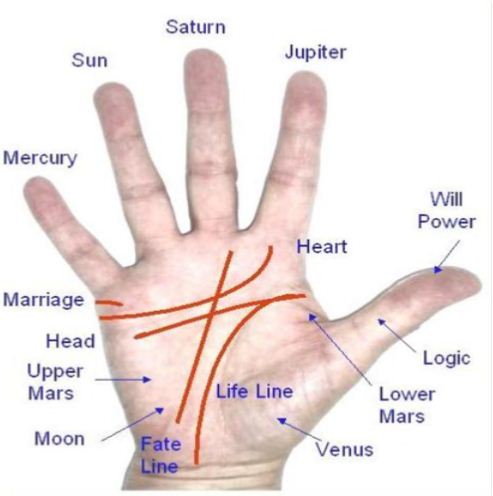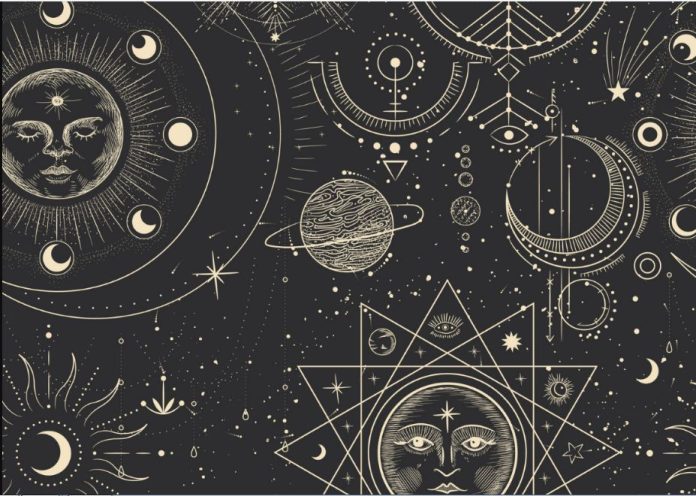By Chanakya
As soon as humans gained consciousness – that was not too long after homo erectus started soaking up the sun on Earth – they started wondering about the world, of things unknown, of things that their underdeveloped brains could not comprehend, and about what lay ahead. Those were the days of fear: fear of the unknown, fear of fire, fear of the thunder, of earthquakes, fear of today and a great fear of tomorrow. If tomorrow comes.
Many thousands of years have passed, and today, with the torch of science burning bright, we still wonder about things we cannot explain, of things that are huge and things that are too small, or too far away. We may not be as scared these days, but we are curious. The only thing we are still worried about is, tomorrow; the future. If only we knew. But, then, if we really knew, wouldn’t life be boring?
Astrology had been practised in every corner of the world at one point of time or other. Be it in ancient Persia, or Egypt, or Babylon or India, or China or Greece, astrology was always there, it still is. It is interesting that, despite the proliferation and development of science, the followers of astrology have only increased. Researchers have remained divided on whether astrology is a ‘science’ a ‘semi-science’, or plain bunkum.
We will not get into the quarrels; we will try to just get under the skin of the believer and try and feel his/her pulse.
All about hope
Astrology has been broken up into several categories, methodologies and schools. Some prefer to study the lines on your palm, some can simply read your face, some base their entire prediction on the position of the planets. Overall, though, astrology, like any ancient art form, is a product of one simple feeling of humans hope.


Hope is a very special feeling, one of the strongest emotions that keep us alive in times of distress and acts as a natural dopamine. We need hope in all forms, even when all seems lost.
That is where tomorrow steps in, quietly, and that is where the desire to know tomorrow steps in too. Astrology comes in, hand in hand with hope. If you think logically, you will see that whether it is science or bunkum, we have always needed hope. And if astrology is that one thing that can offer hope, we need it too.
However, astrology is big business; always has been. Technically, there are two sides to astrology: The believer-buyer and the story teller-businessman. This trend has been prevalent in India possibly from as soon as civilisation struck root.
The business
Let us talk about India. One specific example can give you an insight into the level of business astrology can generate.
A small company, called Gem Selections, was launched in 1987 as a sole proprietorship firm. According to a news report it took just three decades for the company to not just diversify into wholesale and retail but also into exports to various countries. By 2020, its turnover was an astounding Rs 107 crore.


What was its USP? Many people believe that gems and gemstones have healing properties. Many cultures attribute gems to specific energies, and in astrology, each planet is associated with a different stone. These ideas are promoted by astrologers, and like modern doctors prescribing the multitude of tests, especially from pathology labs they have deals with, astrologers would also suggest their clients buy gemstones from these places.
According to gemsociety, “Some use gemstones as part of their spiritual practices to restore energy fields, gain peace, and promote love and safety. In some belief systems, gemstones are placed on certain areas of the body, called ‘chakras’, to promote healing.”
This trend was quickly taken up by Pankaj Khanna (now 58), as he realised that this was to become one of the biggest markets in the years to come. In 1987 he founded Gem Selections. He has been quoted as saying: “When the business was set up, my father used to buy raw gemstones from the mines through a middleman, get lapidary work done (cut and polished) to supply to various jewellers across the Indian subcontinent.”
Along with his wife Anu Khanna, Pankaj set up a wholesale and retail outlet for gemstones in Janakpuri, New Delhi in 1997, and since then, there has been no looking back.
That is pure business. But there is another picture. There are astrologers and seers who would not take a paisa from you, or not suggest you wear stones. They will talk to you, realise your inner worries and suggest a better future in a certain number of days. If you believe, the internal repair work has already started. Faith is a funny thing that way. Science has not been able to quantify faith so far.
The faith
While discussing faith we need to bring in science. An article in Scientific American, one of the premier scientific journals of the world, wonders if astrology is “real”. Strangely, according to the article, “about a third of Americans believe astrology is ‘very’ or ‘sort of scientific.’”


A particular observation made by the journal is interesting. It says: “Something appearing meaningless may be a lesson to learn.”
Think of something as basic as reading the horoscope. Million, if not billions around the world read their horoscope, if not daily, then at least every time adversity calls.
The journal says (and this is US specific data): “According to a study done twenty years ago by the Pew Forum on Religion & Public Life, 25 percent of Americans believed that the positions of the stars and the planets affect our daily lives.” The journal also says that there was actually a decrease in the number of people who believed astrology was not scientific at all. Hence, there has been a shift towards faith.
The planetary conjunction theories – especially the positions of the planets when you were born – are shared by almost all astrologers. And since this is an ancient art, they probably developed independently on different continents and different countries. Hence the near universality in the deduction process is surprising.
Faith is also something that religion has been based upon. You cannot be a staunch believer in religion, while completely disregarding astrology. While astrology thinks it can tell your future, or what fate has in store for you, religion is supposedly the way of life you need to follow for true salvation. Logically, if that be so, then following a stated path in itself is predetermines your future, hence future is predictable.
At the same time, life comes to you as a complex mechanism that throws at you very complex problems. Is faith enough to get you through these?
As Scientific American says: “Astrology is generally defined as the belief that astronomical phenomena, like the stars overhead when you were born or the fact that Mercury is in retrograde, have the power to influence the daily events in our lives and our personality traits. This is, of course, very different from the study of astronomy, which is the scientific study of celestial objects, space, and the physics of the universe.
“A specific aspect of astrology—the forecasting of a person’s future or the offering of advice on daily activities via horoscopes—is particularly growing in popularity. Magazines like The Cut reported an increase of 150 percent more hits on horoscope pages in 2017 than in 2016.”
The cause and effect
So, why is the interest growing? If you consider the current bad times, then the historical growth figures should not have happened. There has not been a time in the history of the world in which the popularity of astrology has not grown.
This effect can be gauged by the causation theory of need, and through real world desperation. It is another thing that such so-called ‘superstitions’ have been forcibly stamped out in Communist regimes – like the erstwhile Soviet Union, now in China and Cuba. Traditions and beliefs survive within these forced cloaks.
Science fails to justify such beliefs. Why would a person not be affected more by his/her actions, than by what a planet may have decided?
Look at it this way: An astrologer will ask you very clever questions on your life and choices. This allows him to make a basic evaluation of you and your surroundings. Then, if certain averaged principles are pronounced before you, there is a more than 50 percent chance that you will fall within the projected zone of people. That would also mean that certain happenings in your life may have bearing on these, and vice-versa. This is a law of averages that anybody can try with a certain degree of success. We all know that, at least all those who are capable of deep thought and analysis can.
However, even if we accept that foretelling your future is non-scientific – leave alone the millions who blindly believe in this – then would you realise that there is sense in the very fact that these are people who can create hope out of nothing?


If you step back and realise the utility of religion and place religion in the backdrop of civilisations where education was basic and superstitions and the fear of the unknown ruled, you will see how effective religion was in uniting people, of giving hapless some hope. Religious edicts were the earliest laws of the land, when laws were yet to be propounded by the monarchs.
The positive outcome of religion was hope. That was what kept people alive, in order, working to maintain a family. Astrology was a natural adjust of religion. There are positive aspects of astrology and you cannot deny that. If you had applied the happiness index to people under a communist regime, the results would have been disastrous. That was because hope is not always rational. And irrationality has its benefits.
Astrology has its social benefits. Maybe the business aspect has become too much, but if it helps maintain a social balance, if it creates hope and brings smiles to the people, even if temporarily, then it is worth it.





















